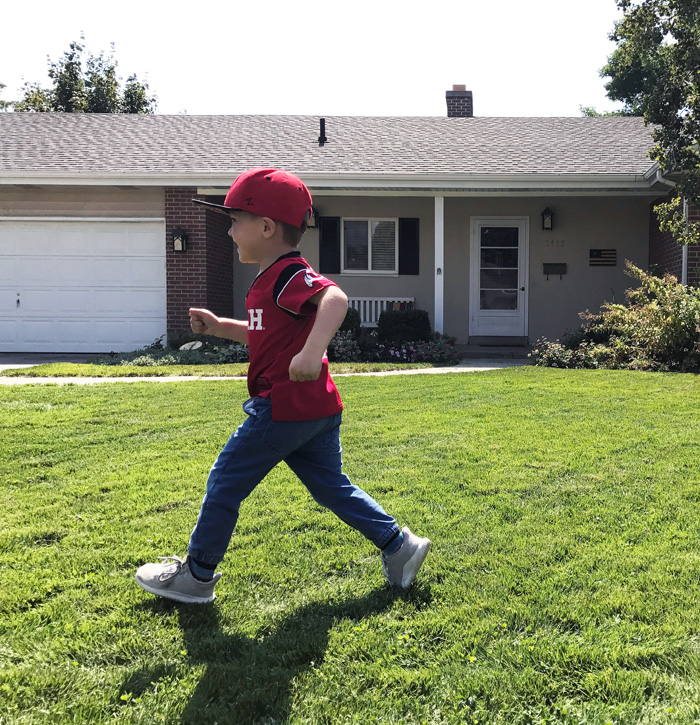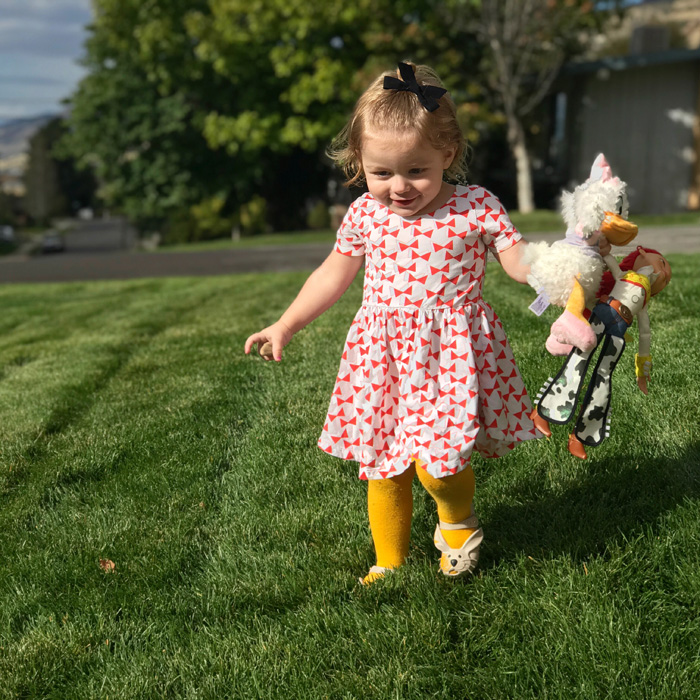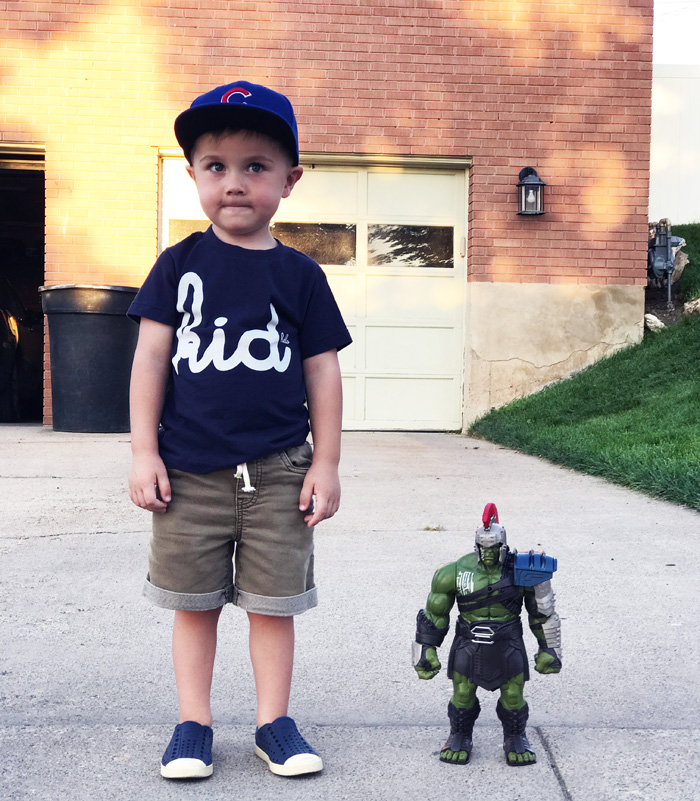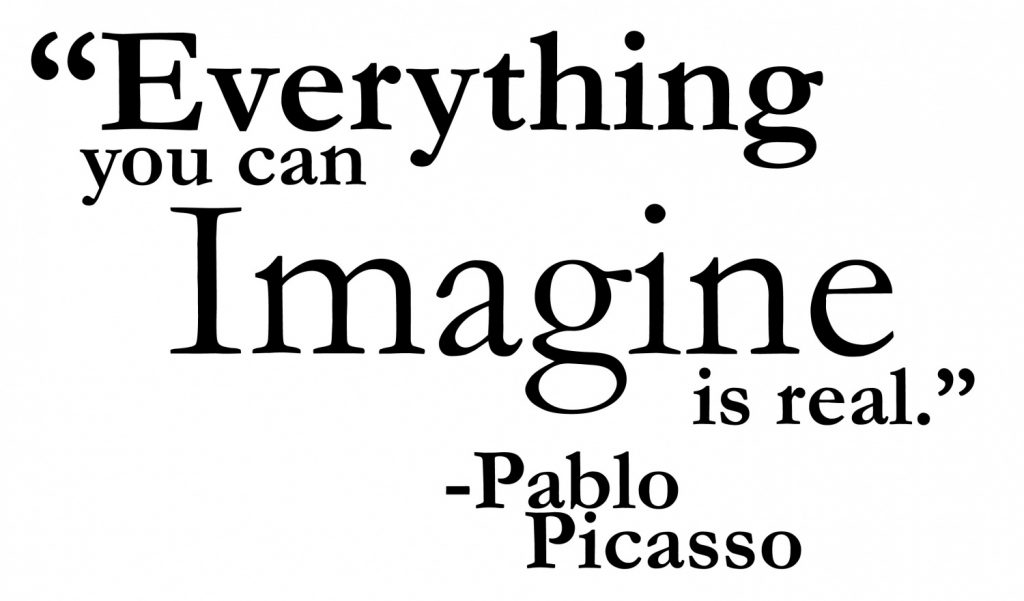An imaginary friend was never a thing for me. I don’t understand it personally, but my son has a gang of them and I absolutely love it. But are imaginary friends okay? Is it healthy to let them have imaginary friends?
 One day, my son and I were talking and he said, “Dad, my friends are here to play soccer.” I was excited for him because we just moved into a new house, neighborhood, city. For him to have friends he was going to play soccer with seemed great. Looking out the window, he was kicking the ball, playing soccer with his friends, but there weren’t others out there with him.
One day, my son and I were talking and he said, “Dad, my friends are here to play soccer.” I was excited for him because we just moved into a new house, neighborhood, city. For him to have friends he was going to play soccer with seemed great. Looking out the window, he was kicking the ball, playing soccer with his friends, but there weren’t others out there with him.
Once he was done I asked how it was playing with his friends. He couldn’t stop talking about them. “Didi and Titi are so funny dad!” or “Poe and Nana live right by us. I think I want to play with them again. They’re my friends and are really good at soccer and baseball.” Should I be worried?
Are imaginary friends okay?
 Being new to a neighborhood, I still don’t know the kids around. Thankfully, I don’t have to worry about the imaginary friends and what my kids are doing with them. I get home from work and I am exhausted. I don’t always have the time or the energy, but lucky his friend Bingbong does. There’s no reason why you as the parent can’t join in the fun whenever you want—next time Bingbong’s around, see if they want help clean up the playroom (well, it’s worth a shot).
Being new to a neighborhood, I still don’t know the kids around. Thankfully, I don’t have to worry about the imaginary friends and what my kids are doing with them. I get home from work and I am exhausted. I don’t always have the time or the energy, but lucky his friend Bingbong does. There’s no reason why you as the parent can’t join in the fun whenever you want—next time Bingbong’s around, see if they want help clean up the playroom (well, it’s worth a shot).
Really though, it’s absolutely healthy for your kids to have an imaginary friend. Although an imaginary friend isn’t real, the interaction between your toddler and his make-believe friend is. The more practice your kid gets with something, the better he’ll be at it. A study published in the Journal of Experimental Child Psychology confirmed this, suggesting that imaginary friendships help children with real relationships later on in life. Another bonus? Because these pretend social situations allow your kid to enact a two-way discussion, it might help him better understand the emotions of another person.
Are imaginary friends healthy?
 If my kid can gain a great confidence in themselves, I think that is healthy. It’s easier to stand up for yourself when you’ve got a friend by your side (imaginary or not). Plus, unless your kid’s pretend buddy is a bossy pants, the experience could help them practice making decisions and beings a leader.
If my kid can gain a great confidence in themselves, I think that is healthy. It’s easier to stand up for yourself when you’ve got a friend by your side (imaginary or not). Plus, unless your kid’s pretend buddy is a bossy pants, the experience could help them practice making decisions and beings a leader.
La Trobe University also found that kids with imaginary friends are highly inventive. No surprises there—it takes a lot of creativity to dream up a flying, walking, talking, superpower-wielding dolphin by the name of Peanuts. Named as such because he doesn’t eat peanuts (obviously). And according to developmental psychologist Marjorie Taylor, this creativity is likely to stick with your child long after Peanuts is gone. “Imagination is not just a frivolous thing you outgrow.”
When should I stop the imaginary friend?
Never. Don’t you dare stop your child from having an imaginary friend. Maybe if your child is in high school, has no friends but their imaginary friends—step in. J.M. Barrie, the author of Peter Pan, said, “The moment you doubt whether you can fly, you cease for ever to be able to do it.” Imagination I such a vital part of childhood.

Every day, when I get home from work I ask my son about his friends. “What did you and your friends do today?” His imagination is real and I love to see him develop.
